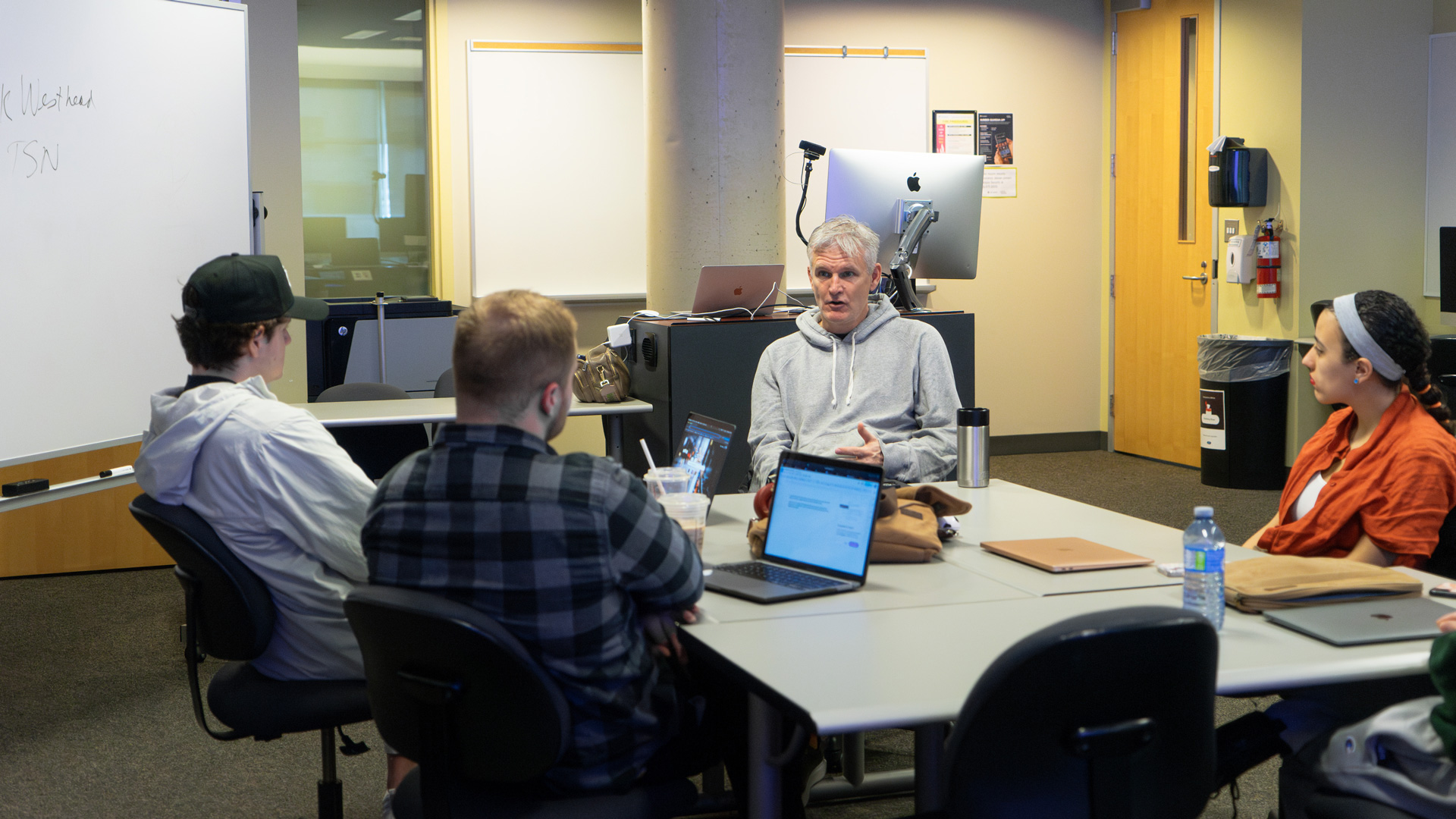Investigative reporter visits Guelph-Humber armed with advice for aspiring journalists

He has covered the political overthrow of the government in Haiti, met with the Taliban and more recently broken a story about sexual assault and hockey that has evoked an emotional response across the country.
On any given day he is pursuing leads, following up on previous stories and making sure the stories the public needs to know are being told.
But recently, award-winning TSN senior reporter, Rick Westhead, visited the University of Guelph-Humber to speak to students in the Media and Communication Studies (MCS) Program. There he answered questions and gave advice on how to break into what has always been a tough but often rewarding industry.
Through his stories and experiences, one thing was clear - he is passionate about what he does.
Westhead didn’t mince words about what it takes to be a good journalist.
Every piece of advice was accompanied by an anecdote from his career and how following some simple advice could lead to breaking a big story or finding out about a compelling story that someone hasn’t told before.
“Get off social media and go and meet people. Human connection happens in person,” Westhead stressed, noting he has driven for hours to meet with someone for a potential story. He explained that to understand someone and build trust, meeting them in person is really the only way.
That message stuck with third year MCS student, Angelina Saleh.
“This really hit home for me because as a beginner journalist aiming to make a mark in the industry, I understand that half the battle is simply connecting with people and delving into their stories. It was a very impactful talk, and being able to learn from Rick’s own experience left a mark on my brain for how I wish to move forward in this career,” Saleh explained.
While it’s ok to map out some questions for an interview subject, Westhead explained that pre-written questions should remain a guideline, as the best interviews happen as conversations and you wouldn’t want to disrupt the flow of a great conversation to stick to a question that might no longer be relevant.
One of the most important parts of a good interview seems simple but is harder than it looks according to Westhead - and that is, to listen.
“Listen and embrace the silence,” Westhead said, noting that if you leave silence, it gives the subject time to articulate their words and compose their thoughts, particularly if something is difficult for them to speak about.
At a time when the media industry is seeing job losses at many of the country’s networks and news agencies, Westhead said this shouldn’t deter students from pursuing a career in journalism.
“It’s all true. It is hard. Chase it. If you have burning desire to be a journalist - chase it. There will always be demand for telling stories in the public interest,” Westhead said. “Do you have to be excellent? Yes. It’s always been hard.”
Part of what struck Saleh about Westhead’s stories was his ability to separate the professional part of his job from his emotions, particularly with some of the more difficult stories he has told.
“Some of the stories he shared evoked strong emotional responses from me. However, as a journalist, it's crucial to maintain composure and not let emotions overshadow the task at hand,” Saleh said. “Rick's ability to navigate this balance is commendable and something I aspire to emulate.”


